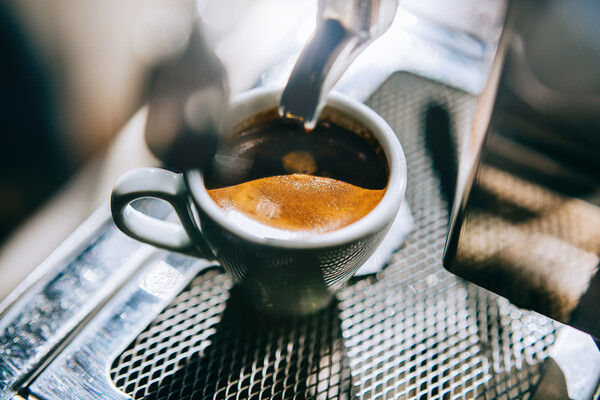[Jeong Jae-hoon’s Column on Food & Drug]
If there are carcinogens in the coffee we drink every day, it would be big news. On the Aug. 6 episode of tvN's “You Quiz on the Block,” an expert mentioned carcinogens in coffee, sparking debate. However, this claim causes unnecessary concern by overlooking the scientific context, as it lacks information about the quantity involved.
The expert explained that coffee contains carcinogens, such as acrylamide and benzopyrene. However, this statement omits an important point: their levels in coffee are so low that they can be safely ignored. Acrylamide is also found in foods like French fries, toast, cookies, and cereal. Coffee contains significantly lower levels than these foods. You would need to drink 87 cups of coffee to consume the same amount of acrylamide found in a medium-sized pack of French fries. Benzopyrene is a substance produced when organic materials, such as wood and meat, are incompletely burned, and it is also found in sesame oil produced during the roasting and pressing process. The amount of benzopyrene in a cup of coffee is significantly lower than that found in smoked fish, charcoal-grilled meat, or cigarette smoke.

As mentioned on the broadcast, the United States once faced controversy over whether coffee contains a carcinogen. In March 2018, the California Supreme Court ruled that coffee shops, including Starbucks, must post cancer warning labels on their products, similar to those on cigarette packs, due to the presence of acrylamide in coffee. However, this decision was overturned just three months later. In June 2018, California regulatory authorities withdrew their position, stating that there was no evidence that coffee causes cancer and that the warning labels were excessive. The U.S. FDA also officially stated that the health benefits of coffee outweigh its potential risks. In 2016, the World Health Organization removed coffee from the list of substances with potential carcinogenic properties. However, hot beverages can irritate the esophageal lining and increase the risk of esophageal cancer. For those concerned about cancer, drinking an iced Americano even in winter might be a better choice.
Epidemiological studies have not shown that coffee consumption increases the incidence of cancer. On the contrary, numerous studies have shown the opposite. People who drink coffee have been found to have a lower risk of liver cancer, endometrial cancer, Parkinson's disease, depression, and type 2 diabetes. There is no reason to avoid coffee based on claims that unnecessarily raise concerns.
“All things are poison, and nothing is without poison; only the dose makes the poison.” This is a quote from Paracelsus, often referred to as the father of toxicology, from the Renaissance era. The detection of a specific component and its associated risk are entirely different matters. The exposure levels of benzopyrene and acrylamide in Koreans are already low compared to those in other countries, and the Ministry of Food and Drug Safety continues to make efforts to reduce the levels of these naturally occurring substances in food manufacturing, processing, and cooking. Any claim about health should be approached with caution if it lacks precise information about quantity.

Jeong Jae-hoon is a food writer and pharmacist. He covers a variety of subjects, including trends in food, wellness, and medications. This column was originally published in Korean in Joongang Ilbo on Aug. 14, 2025. – Ed.
Related articles
- [Column] It doesn’t have to be water
- [Column] What to eat for better sleep on summer nights
- Coffee on an empty stomach causes gastric ulcers, raising the chances of cancer
- [Column] Does lemon water really work?
- [Column] Myths and truths about nutritional supplements’ interactions
- [Column] When is the best time to drink coffee in the morning?
- [Column] The truth about breakfast choices
- [Column] Clearing garlic’s name
- [Column] How to deal with mosquitoes properly
- [Column] Who is health news really for?
- [Column] Misconceptions about protein intake

